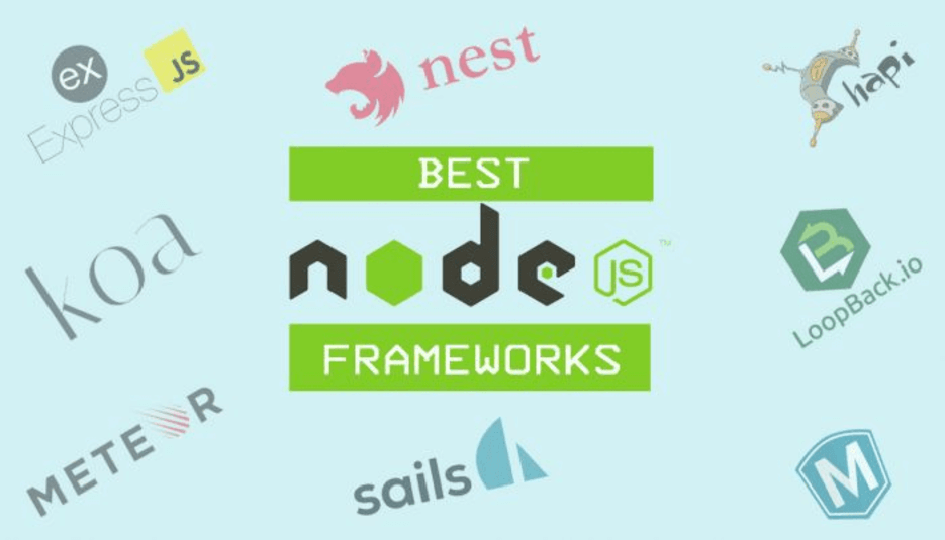
In today’s time, developers are switching to JavaScript to build more applications. With this exponential growth in the usage of framework is created especially for the JavaScript community to facilitate quick prototyping projects. If we talk about Node.Js, then it was introduced in 2009 for building scalable server-side web applications. Node.JS comes with lots of benefits and increase the adoption for the usage of the Node. As time passed, a lot of more improvement built along with powerful frameworks. Are you interested to know what change Node.Js has made till 2019 and how it will rule in 2020? Dive in to know more…
What are Node.JS Frameworks?
Node.Js Development is a kind of design that embodies the control flow of given framework design. We can call it a skeleton of a program that comes with customized codes where we can make up a complete program with ease. Later the Node.JS function makes use of a unique framework, which adds more codes to define its use case.
Benefits of Node Framework
- Talking about Node Framework benefits, then generally, Node.Js frameworks are mostly used for speed, scalability, productivity, and building other enterprise applications for companies.
- For a simple implementation, you do not need to learn both front-end and back-end languages as Node.Js allows you to write the same code for both languages with saving you from learning other codes.
- It helps in maintaining the same coding pattern throughout the front-end and back-end.
- The framework came with a set of tools and recommended practices that help in saving your lot of time.
What is like selecting a Node Framework?
People usually get confused about choosing the use case as we select based on a feature that we like the most. The features include the weight of the framework on speed, simplicity, configuration, and flexibility. Let’s go through the list of Node.JS framework that helps to boost productivity using JavaScript on the server-side.
What are the types of Top Node.js Frameworks?
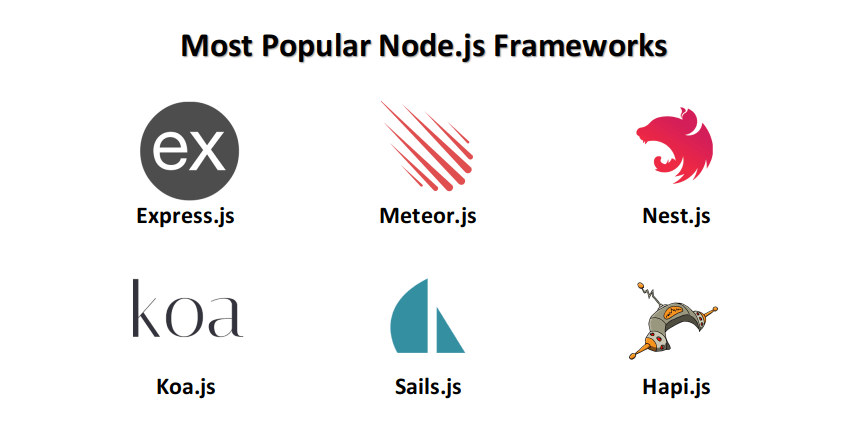
1. Express.JS
Express.JS framework comes with a minimalist web framework for Node.JS. It’s a technology that built on Node.JS and worked as middleware to help servers and routes. The Express.JS can create a light-weighted application that can process more than a single request seamlessly depending on the serving capabilities.
2. Meteor.JS
MeteorJS is one of the most robust frameworks backed up by a massive community of developers and documentation. The framework creates high web and mobile applications for JavaScript. It comes with a real-time update that updates automatically once any change made to the web app. MeteorJS can serve large projects such as reaction commerce and other popular eCommerce open source projects with ease.
3. Koa.JS
Koa JS comes with cooling ECMAScript methods that allow working without call-backs. It provides an immense increase in error handling. It does not bundle any middleware within the core. Every code that comes is quite elegant and granular; however, you make this framework have more control over configuration and handling. Additionally, the Koa Js has cascading middlewares, component-based building blocks, and other dynamic models. It is suitable for a wide variety of databases, which includes MySQL, MongoDB, Oracle, Postgres, and many more.
4. Sails.JS
This Sails.JS framework is used to build custom enterprise-grade Node.Js that support modern apps efficiently. It is one of the most popular frameworks that come with scalable service-oriented architecture. Sails are compatible with almost all front-end technologies that include Angular, Backbone, Windows Phone, and other search technologies.
5. Loopback.JS
Loopback is another kind of Node.JS that is easy-to-use and has a dynamic API. It creates models based on schema where the user-built a server API to maps with another server. Users can create an API that is a proxy for another API with supporting native mobile and browser SDKs for clients. With Loopback, you can create end-to-end Rest APIs, connect devices and browsers, and add-on components for file management, 3rd party login, and other run-on premises.
6. Nest.JS
Nest.JS is a framework that is built to have efficiency, scalability, and other server-side applications. It uses progressive JavaScript, which comes with strong typing and other combine elements such as OOP (Object Oriented Programming), FP (Functional Programming), and other FRP (Functional Reactive Programming). The framework creates effortlessly application that allows highly scalable, highly testable, and easily maintainable applications.
7. Hapi.JS
Hapi.JS comes with Node.js Frameworks that help to serve data by intermediating between the server and client-side. We can call it a substitute for ExpressJS. Hapi traditionally modeled with control web server operations. It comes with the handler function, which draws a route and passes configuration by requesting to get the role do specifically in the configuration. HapiJS comes with detailed API reference and great support for document generation. It comes with plugin-based architecture for scaling where the plugin includes Joi, Yar, Boom, TV, Catbox, Travelogue, and many more.
8. Derby.JS
Derby.JS comes with a full-stack framework to write modern web applications. Derby has been around a little while to prove itself a hop into 2019 along with some rock chords. Moreover, DerbyJs adds seamless data synchronization between server and client. It comes with automatic conflict resolution, which is powered by shared’s operational transformation. Get an opportunity with Derby.JS to add customized codes with building codes that are highly efficient web apps.
9. Adonis.JS
AdonisJS is a Node.JS MVC framework that runs on primary operating systems. This framework comes with a stable ecosystem to write a server-side web application that mainly focuses on business needs. If you’re a big fan of Laravel development services, then Adonis.Js comes with a similar approach, which generally focuses on getting things done with ease.
Conclusion:
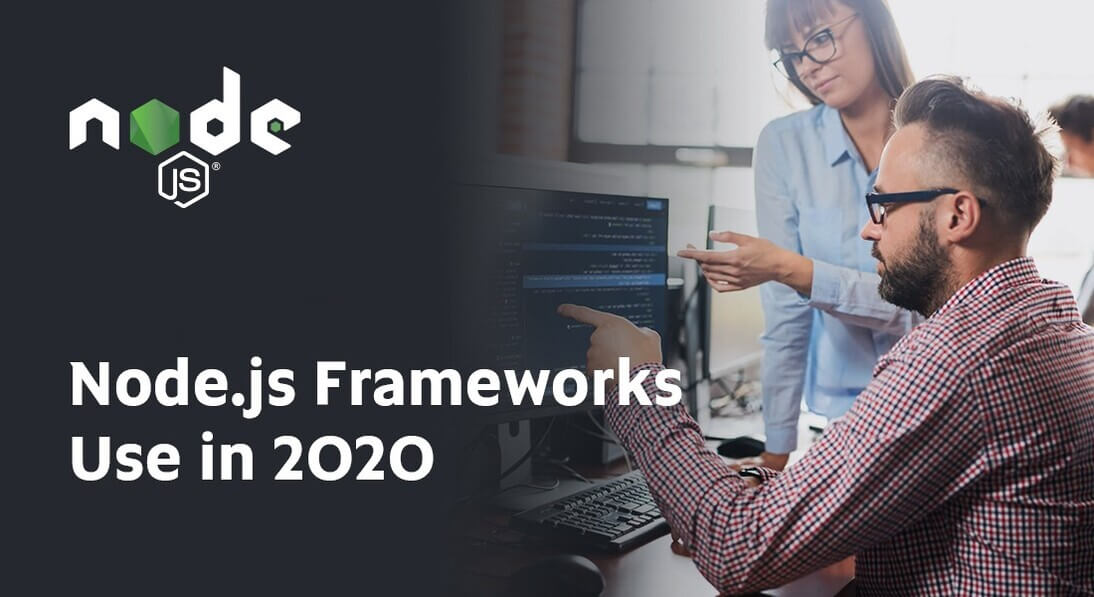
Picking a framework is generally based on your requirements. Above Node.Js frameworks heightened here is based on popularity in JavaScript Community, opinion, and usage by the clients. If you have any other excellent Node.JS framework not mentioned here or you have any project related node js web development, then you can directly contact us.
Node.JS Frameworks: Which Will Rule In 2020


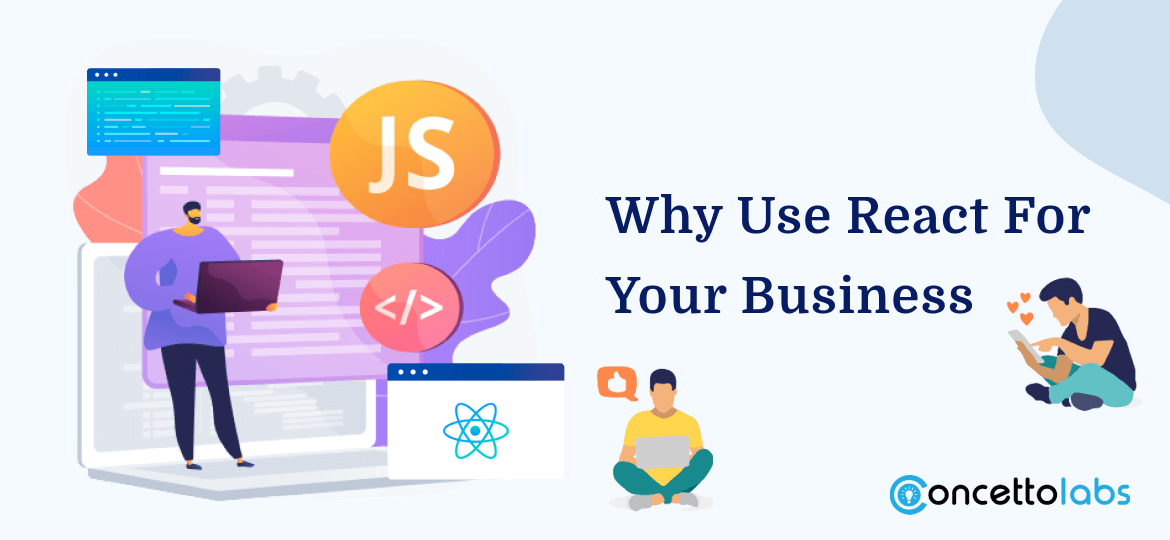
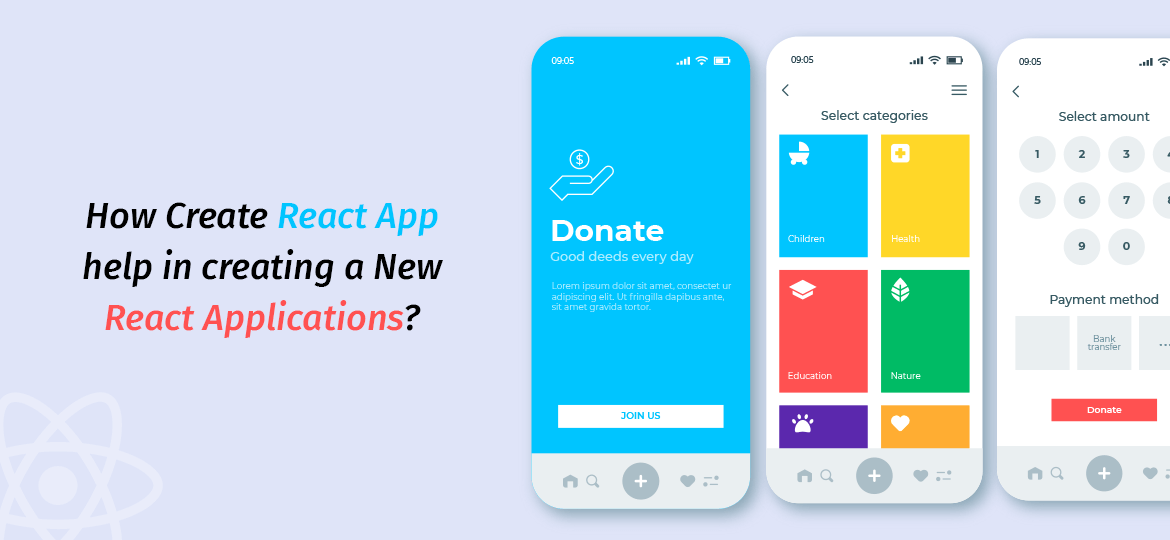



 Indonesia
Indonesia
 Botswana
Botswana
 USA
USA
 Italy
Italy
 Panama
Panama




 USA
USA UK
UK Saudi Arabia
Saudi Arabia Norway
Norway India
India Australia
Australia